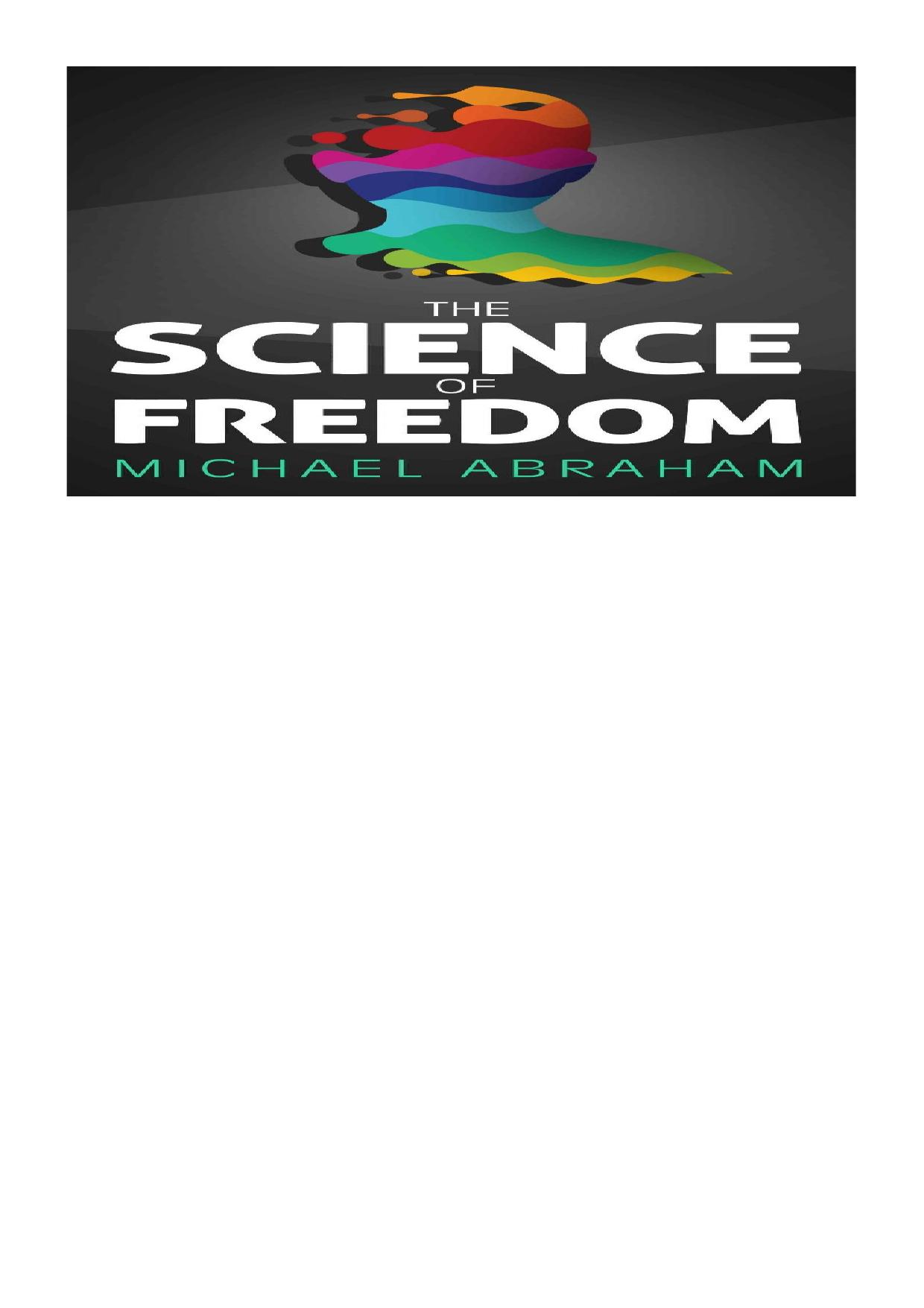The Science of Freedom: An Intriguing Perspective, Questioning Determinism Through Philosophy, Cognitive Neuroscience & Quantum physics (Popular Science) by Michael Abraham

Author:Michael Abraham [Abraham, Michael]
Language: eng
Format: azw3, epub, pdf
Publisher: Philogic Publishing
Published: 2018-02-03T16:00:00+00:00
On a philosophical level, it struck me as an operational way to define free will in a way that allowed you to reconcile free will with determinism. The system is deterministic, but you canât tell what itâs going to do next ⦠Here was one coin with two sides. Here was order, with randomness emerging, and then one step further away was randomness with its own underlying order.
Farmer claimed that this gap in physicalism, which allows us to find randomness and phenomena which cannot be predicted within rigid physics, allows us an opening into understanding the phenomenon of free will.
Ostensibly, this is precisely the gap we were looking for in physicalism. After all, we have here cases in which the present situation does not absolutely determine what will happen in the future; we can never know the future, at least so long as we are not equipped with utopian measuring tools providing perfectly precise data. As we said more than once, freedom of will is also expressed in our inability to predict human decisions. It is thus very tempting to introduce free will into this gap, in a manner which does not harm the principle of causality (we are also thus exempt from making use of the Lex Specialis rule we described in chapter six).
But despite the excitement and fascinating options which chaos ostensibly present us, the connection Farmer made between randomness and free will is problematic, to say the least. As weâve already shown, freedom of choice is not randomness but another sort of mechanism. Already at the beginning of chapter two we saw that throwing a die or tossing a coin is a phenomenon which contains nothing random, yet we still address it with tools of probability and statistics. Moreover, data from chaotic systems are not even really random; As we have seen, they only have characteristics similar to random data. The distinction between random data and chaotic data is a lively and fairly complex field of research, but it is clear to all those who study it that they are two different kinds of phenomena.
It may be that Farmer was not talking about actual randomness. He may have simply meant to say that because of the inability to predict, we cannot speak of causality, and there is therefore room for free will even within a physicalist picture. But even this lenient interpretation reveals an error, if not a misunderstanding of the philosophical issue of freedom of will. When he said these things, Farmer was just twenty four years old and starting out. We can therefore forgive such blatant philosophical errors. But itâs harder to forgive more mature and experienced philosophers, physicists, and mathematicians, who keep repeating the same mistake, until today.
So whereâs the mistake? The basic mistake is conceptual. From chapter one, we pointed to the lack of predictability not being equivalent to the lack of causality, just as predictability is not equivalent to causality. We also saw that if there is a synchronous relationship between two
Download
The Science of Freedom: An Intriguing Perspective, Questioning Determinism Through Philosophy, Cognitive Neuroscience & Quantum physics (Popular Science) by Michael Abraham.epub
The Science of Freedom: An Intriguing Perspective, Questioning Determinism Through Philosophy, Cognitive Neuroscience & Quantum physics (Popular Science) by Michael Abraham.pdf
This site does not store any files on its server. We only index and link to content provided by other sites. Please contact the content providers to delete copyright contents if any and email us, we'll remove relevant links or contents immediately.
| Administration & Medicine Economics | Allied Health Professions |
| Basic Sciences | Dentistry |
| History | Medical Informatics |
| Medicine | Nursing |
| Pharmacology | Psychology |
| Research | Veterinary Medicine |
Bioenergetica by Alexander Lowen(1472)
The Child in You by Stefanie Stahl(1253)
No Bad Parts by Richard C. Schwartz(1236)
Noise: A Flaw in Human Judgment by Sunstein Cass R. & Sibony Olivier & Kahneman Daniel(1187)
The Data Detective by Tim Harford(1133)
Chatter by Ethan Kross(1061)
The Science of Rapid Skill Acquisition by Peter Hollins(918)
The Quantum Psychiatrist: From Zero to Zen Using Evidence-Based Solutions Beyond Medication and Therapy by Biswas Dona(874)
Freedom by Sebastian Junger(855)
The Montessori Baby by Simone Davies(849)
Maps of Meaning: The Architecture of Belief by Jordan B. Peterson(743)
The Science of Self-Learning: How to Teach Yourself Anything, Learn More in Less Time, and Direct Your Own Education (Learning how to Learn Book 1) by Peter Hollins(729)
Evolution Gone Wrong: The Curious Reasons Why Our Bodies Work by Alex Bezzerides(704)
Sadomasochism and the BDSM Community in the United States by Stephen K. Stein(688)
Anxiety For Dummies by Charles H. Elliott & Laura L. Smith(666)
Why Sex Doesn't Matter by Olivia Fane(661)
Disconnected by thomas Kersting(658)
Jung - The Key Ideas: Teach Yourself (TY Philosophy) by Ruth Snowden(628)
The Mechanics of Passions: Brain, Behaviour, and Society by Alain Ehrenberg(613)
